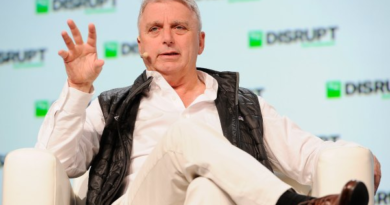Binance.US sailed away from its $1.3B deal with Voyager, now what?
Welcome back to Chain Reaction.
Earlier this week, Binance.US broke off its $1.3 billion deal to buy crypto broker Voyager Digital’s assets due to a “hostile and uncertain regulatory climate.”
The announcement comes about nine months after Voyager filed for bankruptcy. At the time, the U.S.-headquartered firm — and its two affiliates — said in a Chapter 11 bankruptcy filing in the Southern District of New York that it had between $1 billion and $10 billion in assets and more than 100,000 creditors.
In a court filing on Tuesday, Voyager lawyers said the company reserves all rights for the $10 million good-faith deposit from Binance.US to Voyager, in addition to a reverse-termination fee owed by the U.S.-based crypto exchange.
“While our hope throughout this process was to help Voyager’s customers access their crypto in kind, the hostile and uncertain regulatory climate in the United States has introduced an unpredictable operating environment impacting the entire American business community,” Binance.US said in a statement on Tuesday.
This back-out is the latest headache for Voyager, which has been trying to raise capital through asset sales so it can repay creditors after it filed for bankruptcy last year. The company also struck out with an agreement with FTX, which agreed to buy Voyager’s assets but then collapsed itself in November (and filed for bankruptcy, too).
Following Binance.US’ termination of the asset purchase agreement, Voyager said the “development is disappointing,” but its Chapter 11 plan allows the company to return cryptocurrency and cash directly to customers through its platform.
“Consistent with the plan, we will now move swiftly to return value to customers via direct distributions. We will provide more information on next steps and any actions customers need to take in the coming days,” Voyager added.
This week in web3
OpenSea’s next journey is to help Web 2.0 brands get into web3 (TC+)
OpenSea, one of the largest NFT marketplaces, is well-known for its trading platform, which allows users to buy and sell digital assets. But the company is continuing to expand its product footprint to appeal to other audiences like Web 2.0 brands, said Shiva Rajaraman, OpenSea’s chief business officer.
Crypto wallet Phantom to release public multichain support for Ethereum and Polygon
Phantom, a crypto wallet for Solana blockchain users, will start supporting the Ethereum and Polygon blockchains in a public launch across browsers, iOS and Android on Monday, May 1, at 9 a.m. EST, the company exclusively told TechCrunch. Support for the two new blockchains was originally slated for the first quarter of 2023, but was pushed back. The multichain integration will be available to its 3 million users, Brandon Millman, CEO and co-founder of Phantom, said to TechCrunch.
Crypto exchange Coinbase sues SEC over rulemaking petition
Coinbase has filed a petition to compel the U.S. Securities and Exchange Commission to respond to a months-old petition that asks whether the securities regulator would allow the industry to be regulated using existing SEC frameworks, the exchange firm said on Monday, escalating its tensions with the regulator that has ramped up enforcement actions and warnings against crypto firms, including the American giant.
What happens to your crypto when you die? (TC+)
As the crypto industry matures, one consideration often left ignored is estate planning for your assets when you pass. Given that a lot of crypto assets are held in both hot and cold wallets and guarded by private keys (among other security elements), these funds could be virtually lost forever without a plan in place. “The call to action is to do it,” Jaime Herren, an attorney at Holland & Knight, said. “Don’t think you’re too young to put a plan in place for your assets.” (Of course, this advice also applies to people with traditional assets, too.)
Coinbase’s layer-2 blockchain Base plans for 2023 mainnet launch
Coinbase’s blockchain Base has been live in testnet, which is a test phase of the blockchain network, since late February. It isn’t sharing “official timelines,” but Jesse Pollak, the lead for Base and head of protocols at Coinbase, disclosed exclusively to TechCrunch that Base is planning for its mainnet launch in 2023. “It’s coming soon, we’re working hard on it,” Pollak said. “It’s our number one priority alongside decentralization goals and the rest of the year is really about making sure we get there as quickly as possible.”
The latest pod
For last week’s episode, Jacquelyn interviewed Jesse Pollak, the lead for Base and head of protocols at Coinbase. Base is an Ethereum-focused layer 2 blockchain launched by Coinbase in February of this year.
Pollak previously led all retail engineering at Coinbase, including building Coinbase, Coinbase Pro and Coinbase Wallet. In a past life, Pollak started Clef, a 2FA mobile app and was an engineer at BuzzFeed.
A number of crypto businesses, platforms, marketplaces and infrastructure firms have committed to building on Base. Those that plan to be involved include Blockdaemon, Chainlink, Etherscan, Quicknode, Aave, Animoca Brands, Dune, Nansen, Magic Eden, Pyth, Rainbow Wallet, Ribbon Finance, The Graph, Wormhole and Gelato, to name a handful.
We talked a lot about Base and where it’s headed in the future, as well as how regulation could affect the blockchain and the timeline for its mainnet launch; Pollak shared it’s aiming for 2023.
We also dove into:
- Decentralizing Base
- Developers growing internationally
- Coinbase’s role in Base
- Advice for developers
Subscribe to Chain Reaction on Apple Podcasts, Spotify or your favorite pod platform to keep up with the latest episodes, and please leave us a review if you like what you hear!
Follow the money
- Now valued at $500 million, Cosmose ditches Stripe to adopt Near’s crypto solution
- Digital asset custodial provider Zodia Custody raised $36 million
- Izumi Finance raised $22 million for its multichain DeFi protocol
- Cata Labs raised $4.2 million for its blockchain-focused liquidity protocol
- Animoca Brands’ TinyTap raised $8.5 million for its educational games
This list was compiled with information from Messari as well as TechCrunch’s own reporting.
To get a roundup of TechCrunch’s biggest and most important crypto stories delivered to your inbox every Thursday at 12 p.m. PT, subscribe here.
Follow me on Twitter @Jacqmelinek for breaking crypto news, memes and more.




